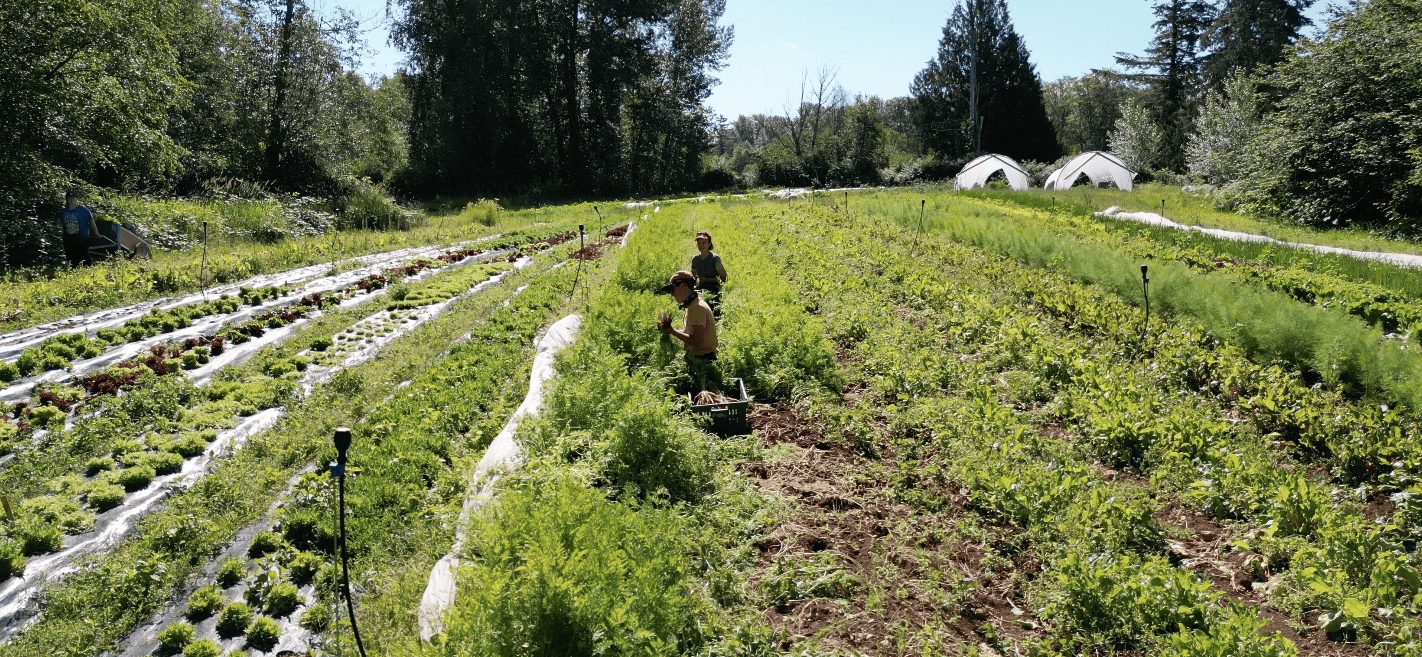On May Day the NFU Calls for Action to Protect Farm Worker Health and Safety Amidst the Climate Crisis
Farm workers and farmers are on the frontlines of Canada’s climate crisis. On this International Workers Day (May Day), the National Farmers Union (NFU) calls for improved Occupational Health and Safety (OHS) and labour rights for farm workers as protective measures against the impacts of climate change.
As temperatures rise, agricultural workers are increasingly exposed to extreme heat and its hazards. Clouds of smoke from wildfires, brought on by drought, are drifting hundreds of kilometers and affecting the air quality on farms across the country. Severe storms, high winds and flooding all pose threats to workers safety. What we need to see from our politicians is bold climate action, comprehensive and lasting health and safety protections, and improved labour rights and the mechanisms to enforce those rights, such as collective bargaining and union representation, to make farm work safer for all.
Across the provinces, existing OHS legislation is inadequate to properly protect workers from the mounting health impacts of climate change. Additionally, farm workers continue to be excluded from many of the provinces’ Employment Standards protections. Without labour and OHS standards enabling workers to take breaks, limit hours worked on the farm, or access life saving measures such as shade, potable water, and appropriate PPE, farm workers are vulnerable to the negative health impacts of severe weather and extreme heat.
This vulnerability is particularly acute for the tens of thousands of migrant workers employed in agriculture, whose closed work permits tie them to a single employer. Risking deportation if they advocate for their health and safety, migrant workers face increasingly dangerous living and working conditions due to expanded pesticide use, intolerably hot employer-provided housing, wildfire smoke, and extreme weather. The NFU has consistently encouraged government leaders to advance the rights of migrant workers, including the need to overhaul the agricultural streams of Canada’s temporary foreign worker programs to ensure safe working and living conditions, end closed permits, and offer real pathways to citizenship.
Employers are also unsupported and under-resourced and are left to determine what is safe or unsafe for themselves and their staff without consistent and binding regulations to protect themselves and their workers. While most provinces do have OHS regulations that address heat stress (notably Ontario and Alberta do not have heat-related regulations), many of those regulations do not go far enough to protect workers from the health impacts of heat exposure. No province currently has legislation protecting outdoor workers from poor outdoor air quality.
This summer, NFU farm workers and employers will be launching a storytelling and advocacy campaign drawing attention to the impacts of climate change on the physical, mental, and economic health of those of us who do the essential work of growing Canada’s food. Stay informed by following @nfucanada on Instagram.
-30-
For more information:
Hannah Kaya, NFU Farm Worker Organizer: kaya@nfu.ca
